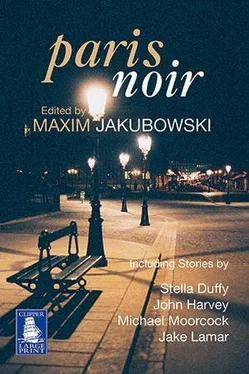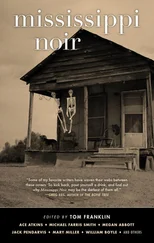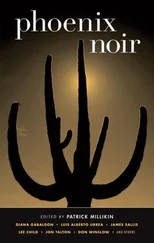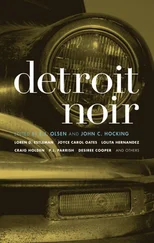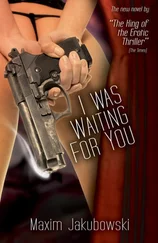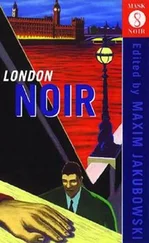Maxim Jakubowski - Paris Noir
Здесь есть возможность читать онлайн «Maxim Jakubowski - Paris Noir» весь текст электронной книги совершенно бесплатно (целиком полную версию без сокращений). В некоторых случаях можно слушать аудио, скачать через торрент в формате fb2 и присутствует краткое содержание. Жанр: Детектив, на английском языке. Описание произведения, (предисловие) а так же отзывы посетителей доступны на портале библиотеки ЛибКат.
- Название:Paris Noir
- Автор:
- Жанр:
- Год:неизвестен
- ISBN:нет данных
- Рейтинг книги:3 / 5. Голосов: 1
-
Избранное:Добавить в избранное
- Отзывы:
-
Ваша оценка:
- 60
- 1
- 2
- 3
- 4
- 5
Paris Noir: краткое содержание, описание и аннотация
Предлагаем к чтению аннотацию, описание, краткое содержание или предисловие (зависит от того, что написал сам автор книги «Paris Noir»). Если вы не нашли необходимую информацию о книге — напишите в комментариях, мы постараемся отыскать её.
Edited by Maxim Jakubowski, the stories range from quietly menacing to spectacularly violent, and include contributions from some of the most famous crime writers from both sides of the Atlantic, as well as the other side of the Channel.
Paris Noir — читать онлайн бесплатно полную книгу (весь текст) целиком
Ниже представлен текст книги, разбитый по страницам. Система сохранения места последней прочитанной страницы, позволяет с удобством читать онлайн бесплатно книгу «Paris Noir», без необходимости каждый раз заново искать на чём Вы остановились. Поставьте закладку, и сможете в любой момент перейти на страницу, на которой закончили чтение.
Интервал:
Закладка:
The Seine was not made for death, there has been the occasional broken princess at its side, but by and large Parisians have done well to keep their bloodied and often headless corpses firmly in the squares, on dry land – not easy when the square is an island – but they’ve done pretty well. The polite man in a white coat is telling me they pulled her from the river just over a day ago, then brought her here. She had no bag, no wallet, no phone, no identifying tags. She had my name and number, written small, folded smaller, in the discreet gold charm on her discreet gold bracelet. My French is schoolgirl French at the best of times, good for menus and directions and, once, for flirting with young soldiers in New Caledonia, drunken conversations with Spanish relations where French is our only common language -confronted with Marie-Claude’s bloated body and seaweed hair, the best I could do was stutter no, non, encore non, and eventually oui, c’est elle - Marie-Claude.
After that came a long time of asking questions, her home, her details, her family. I suggested they call her husband, he’d know these answers. I gave them her home number, a junior was sent to call, returned saying there was no reply. Well, no, he was probably still at work. Why did she carry my number on her? I didn’t know. I didn’t know she did. Were we good friends? Yes we are. Were. Were we lovers? Yes. We had been. A long time ago. When did I last see her? It has been a month, I was due to visit next week. We both have lives of our own, we did not see each other all that often. Just enough. They said they would probably have more questions for me later, there were certain things they didn’t understand. I expect one of them was that the water in her lungs was not the same as the water in the river. I didn’t suggest this though, if they hadn’t figured it out yet, they would in time. They asked me for my passport and requested I didn’t leave the city. I told them I understood. I would be as helpful as I possibly could. I cried. Both in truth and for effect. I was – am – sad for her. They were very grateful for my help. And I think they believed me, it’s always hard to be sure of the truth in translation.
More than four hours had passed by the time I left. I assumed they’d have someone follow me, if only to make sure I didn’t jump in the river as well. She didn’t jump, they must know that. I walked a long time by the water and it was cold and damp, but that felt right. I had expected her to look bad, to look dead. I hadn’t thought about her being ugly, dirty, unsuited to the place. Marie-Claude could never have been suited to that place. The light was far too white. Eventually, when I had walked far enough and long enough I found a bar and began to drink. I drank to my good health and her had death. I drank to a night in Paris when I came here with a girlfriend and left with a drunken Glaswegian squaddie. I drank to the birthday lunch I ate once in a half-broken mausoleum in Père-Lachaise, wet and alone and angry. I drank to the day I showed my mother Paris, she who never thought she’d visit the city of light and found it pretty, but wanting. She could not abide tourists, and I did not know what else to show her, not then. I did not know Paris so well then, did not have Marie-Claude’s desire to guide me. I drank to him, the husband, how good he had been, how useful, how loving, how lovely. What a good husband and what a good lover. And I drank to her and to me.
Late that night, very late, I have no idea exactly how late, I was not looking at watches or clocks, paying attention to opening hours or closing, I took a taxi to a hotel I remembered from many years ago, a hotel that had nothing to do with her or with me. I leaned against the door and rang the bell until a furious night porter let me in and I bribed him with a fifty-euro note to give me a bed for the night. The young woman who had been shadowing me since I left the mortuary waited on the other side of the road until I was shown to a room, drunkenly closed my curtains and, half an hour later, turned off my light. She waited an extra fifteen minutes to be sure, and then trod wearily home. I expect she thought police work might be more fun.
And now I am sober. I am no actress, I admit that, but it is easy to persuade a young woman watching at a distance of twenty feet that grief is drunkenness, lust is love, despair merely an absence of hope.
I arrange my bag, collect my things. I was in this hotel last week, left a case with the friendly night porter. He is a better actor than his work record would show. I thought he really was angry when he answered the door. Or perhaps it was just a way for him to demand the fifty I gave him instead of the twenty we had agreed. Either way, he has done as requested. It is all here. The case with my new clothes and the wig, glasses and keys. The keys to her apartment, our apartment, the home in which I loved Marie-Claude. Our Paris home. I had thought it special and separate. I did not know there were two other keys she also kept as well as the one home she shared with her husband, other apartments she maintained. She was very good at it, the hiding, the lies. Me too. I get changed as quickly as I can, leave the front door looking like a different woman. Even if the watcher has stayed longer than I believe she has, she will not see me now.
Those people complaining at the Gare du Nord are right, it is easy to get in and out of the country. It is easy not to have your passport checked on leaving Britain when you journey to Bilbao in a friend of a friend’s yacht. When you arrive in a tiny seaside village early in the morning where no one cares where you’ve come from, as long as you are prepared to spend money. It is simple to take one train to Barcelona and then another through to Toulouse and buy a car and drive to Paris to meet your lover’s furious husband. I don’t suppose, however, that entirely white group of protestors at the Gare du Nord were complaining about the travel plans of someone like me. A woman growing older becomes more and more anonymous. A wig with more grey than brunette, makeup carelessly applied, dull clothes that don’t quite fit, plain and low-heeled shoes – the mask of a middle-aged mother is not a difficult disguise and the vanity pangs when passing a mirrored shop front are a price well worth paying for the gift of near-invisibility in the eyes of the young men who man the passport and customs desks.
I hurry away. To a place he has told me of. We meet there in secret, in case he too is being watched. We burn her diaries. I do this as myself, wig and false clothes removed. The light of the small fire keeps me warm, as does his skin. We are careful. It is too good to spoil, this being together. When the work is done, her words burned, he turns to the little case he brought with him, takes out a picnic of bread and cheese and wine, and we toast each other. Our very good fortune to have found each other. And we thank her, for the introduction. In an hour it will be time for me to hurry back to the hotel, hide this other me, he will need to get to the markets, to carry on, as a good widower, and a better restaurateur, in dependable grief.
It began six months ago. He called and asked me to come. So I did. He made the travel arrangements, explained what he had decided needed to happen. We met at the restaurant, late, when only Daoud was still there, hosing down the floor, sluicing away bread and blood and grease so the kitchen would be clean for the morning. Daoud was surprised to see me and, I quickly understood, disappointed. His boss shouted at him for staying so late, taking so long, told him to fuck off, there were plenty of other illegal immigrants hungry for work. I said I did not know that Daoud was illegal, the patron did not either, not for sure, but the way his employee ran from the building suggested he had made the right guess.
Читать дальшеИнтервал:
Закладка:
Похожие книги на «Paris Noir»
Представляем Вашему вниманию похожие книги на «Paris Noir» списком для выбора. Мы отобрали схожую по названию и смыслу литературу в надежде предоставить читателям больше вариантов отыскать новые, интересные, ещё непрочитанные произведения.
Обсуждение, отзывы о книге «Paris Noir» и просто собственные мнения читателей. Оставьте ваши комментарии, напишите, что Вы думаете о произведении, его смысле или главных героях. Укажите что конкретно понравилось, а что нет, и почему Вы так считаете.
